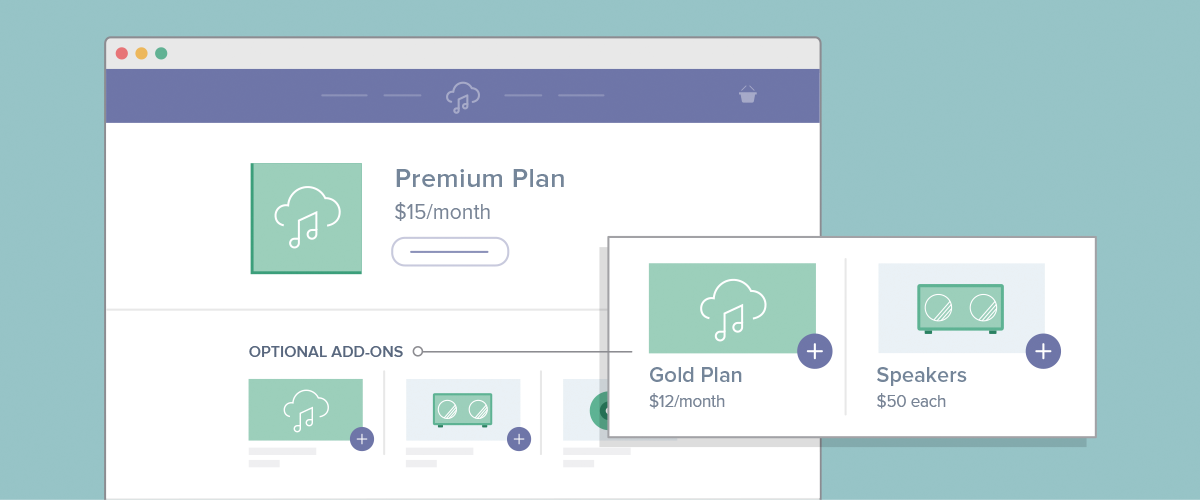New Billing Models for Changing Consumption Patterns

The success of the subscription model has altered the e-commerce landscape. Numerous new and innovative businesses in a variety of industries are launching every week, focusing on the subscription model to provide a better customer experience and build loyalty. As well, a number of notable, ‘traditional’ businesses have transitioned, in whole or in part, to a recurring revenue model. Adobe, for example, no longer sells its software via a licensing model but provides access through a monthly SaaS subscription fee.
Adding a subscription component as a complementary service to a non-recurring business helps businesses to better compete and drives market share. Porsche, for example, is testing out a new subscription service in Atlanta. Another example is UnderArmour which just launched their own subscription box service as a means to reignite the pace of its sales growth. This kind of hybrid billing model is becoming increasingly common, and it’s a reflection of the convenience, popularity, and sheer ubiquity of subscription commerce. Indeed, Forrester recently reported that 29% of global decision-makers surveyed plan to adopt a recurring revenue-based business model in the next 12 months.
Subscription businesses too are adopting a hybrid billing model by selling one-time products along with subscription plans. For example, BarkBox lets subscribers include a new dog toy in their monthly delivery of dog food. Or subscribers to Livestream, a video streaming platform, may purchase a digital camcorder with their subscription. A monthly jewelry service might also sell jewelry boxes. A tea subscription might offer teapots. The examples are endless.
These examples show how consumption patterns are changing, and businesses need to be flexible enough to accommodate these shifts and create new opportunities to earn revenue. They need to provide a checkout experience that can accommodate any combination of one-time and recurring items. They need confirmations, invoices, renewals, and backend operational workflows that are able to manage the complexity inherent in having any combination of multiple subscriptions and one-time purchases in a single transaction.
Hybrid Billing Model
Recurly is pleased to announce support for a Hybrid Billing Model, giving our customers the ability to sell any combination of subscriptions and one-time products together. Businesses that sell one-time products can introduce a recurring revenue stream, while subscription businesses can sell complementary one-time products. Either way, Recurly easily combines fixed recurring and one-time charges into a single invoice, minimizing friction with a simple and fast checkout experience and reducing cart abandonment.
By consolidating the purchase of multiple one-time items and/or multiple subscriptions into a single transaction, a single invoice, and a single confirmation email, subscribers benefit from a more streamlined experience and clearer communication via a single confirmation email.
Having a combined invoice can help reduce involuntary churn from transactions that may be temporarily blocked by card issuers for appearing to be fraudulent if multiple similar transactions are submitted. For the business, fewer transactions also reduces gateway costs which are charged per transaction.
Calendar Billing
Customers benefit from clearer communications at renewal time too, especially if they have multiple subscriptions. With our new calendar billing feature, businesses that allow customers to purchase more than one subscription will be able to renew those subscriptions together via a single transaction and a single invoice, streamlining the process for both the business and the customer. As noted above, the business will also incur fewer transaction costs, while the customer will receive only a single confirmation email.
Recurly’s calendar billing provides options for both physical goods and digital services. These options allow for aggregated invoices in the case of multiple renewals on a single account, which many physical goods companies need. Similarly, calendar billing can automatically align renewals, creating a combined renewal invoice with automatically prorated charges for plans with different bill dates, which many digital services require.
Through both of these new features—Hybrid Billing and Calendar Billing—we’ve providing more flexibility to subscription businesses and more efficient operations. And these features let subscriptions businesses offer their customers a more streamlined experience which supports increased conversions and decreased customer churn.
Current customers should contact Support to enable the feature.


